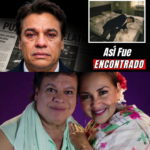When my father fell seriously ill, the whole house seemed to stop breathing. The small, low-roofed house in the countryside — where so many years of quiet memories lay — suddenly turned heavy, painted in the color of worry. My mother’s hands trembled, her eyes sunken from sleepless nights; relatives came and went quickly, because life’s burdens did not allow anyone to stay long. I went home, held my father, and felt powerless: the cost of medicine, tests, ambulance rides… all piled onto my mother like a mountain.
That day when I left, my husband held my hand, his voice firm: “Don’t worry. I’ll bring 50 million VND back home to take care of your father.”
His words were simple but resolute. That was a promise at the very moment I needed support. I wept silently, not because of the money, but because he stood with my family. Trust — a warm feeling — stretched inside me during the days that followed.
A month passed. I calculated everything: medicine, hospital bills, my mother’s meals… I saved, I called home often, and my husband still repeated: “I already took care of it. Don’t worry.” I wanted to believe him.

But when I walked through the village gate the next time, everything shattered in a small image that cut my heart apart — my father sitting on a bamboo chair under the porch, the sunset falling across the roof, his thin, trembling hands counting bundles of small bills. All were 1,000 or 2,000 VND notes — folded neatly, wrinkled, the kind of money shopkeepers or vegetable sellers give back in change. He stacked them into little bundles, put them into an old, chipped candy tin, and quickly hid them when he saw me.
“I still have money for medicine, don’t worry,” he forced a smile, but his eyes were red, shimmering with an unspoken bitterness.
That scene froze me. I looked at the cracks in his hands, the calluses of a lifetime, and asked myself: where was the 50 million? Why was he still gathering scraps of small bills?
That night, my heart was heavy as stone. In the dark countryside, each insect’s chirp was like a knife. My husband slept first; I sat quietly by the porch, not knowing what hurt more — my father counting scraps of money, or the sense of betrayal from a broken promise.
Then I saw him fidgeting. The weak yellow light from the table lamp shone on his face, making the sweat on his forehead glisten. He bent down, pulled a thick wad of money from his pocket — and hurriedly stuffed it into another. His hands shook as if afraid of being caught. The bills were crisp, newly printed, smelling of the bank — not a few hundred thousand, but a large amount, thick and heavy.
He startled when he saw me watching. His mumble — “I’m just keeping it safe” — didn’t convince me.
In that moment, something cold clung to me. I looked at the wad of money as if it were a stranger. My heart pounded, my head heated with the warning: something is wrong. The first seed of suspicion sprouted — quiet, but sharp enough to break the calm I had been holding for the past month.
The night bus taking us back to the city felt unbearable. Mist outside blurred the fields; the hum of the engine, the hiss of passing rain — all muted in a suffocating shell. I kept silent. He avoided my eyes, his hand occasionally pressing against his pocket as if checking something inside.
Suddenly, his phone rang. The screen lit up with my father’s name. I heard his voice when he answered: first surprised, then visibly stiff with shock. A strange fear spread across his face — not fear of danger, but the shame of being unmasked.

“Yes… yes, sir…” his words sounded timid. Then my father said only one short sentence, raspy and hoarse on the other end, but heavy as stone: “You haven’t given me a single penny.”
The whole bus seemed to stop. He clutched the phone, his face drained, sweat soaking his shirt. The driver turned as if under urgent orders; my husband jumped up, yanked out his wallet, and counted frantically. This time, he handed my father 100 million — thick stacks, large bills, enough to shock anyone. His hands shook so badly the notes slapped together like a desperate heartbeat.
The man I once knew — steady, sometimes dry, but always dependable — now looked small before one phone call. He rushed his words, stammering: “I’m sorry… I… please believe me.” He looked at me, eyes pleading.
I froze. Part of me wanted to scream: Why? Another part couldn’t understand why someone who had promised could keep silent and hold back the money. My mind clawed for logic: maybe he kept it safe, maybe he had plans not yet done. But my heart had already been stabbed — not by the amount, but by the act of hiding, of withholding responsibility.
When I called my father afterward, his voice was calm to the point of pain: “I’ve known all along, my child.”
I choked: “You knew? Why didn’t you say anything?”
He gave a weary smile through the phone: “I didn’t want to trouble you further. I didn’t want you to be sad, to blame him. I gathered small notes so you wouldn’t worry. But tonight I called because I wanted to test him. I only needed to say one sentence — just one. When I told him, ‘you haven’t given me a penny,’ his reaction told me everything.”
It felt as if the ground split beneath me. My father had known, but stayed silent to test. That image of him counting scraps now meant something else: not because he was naïve, but because he wanted to protect me, and to see clearly the man beside me.
At that moment, memories of childhood rushed back — his sun-burnt hands, his voice telling old stories, the modest but warm meals — and the pain doubled. I wanted to shake the trembling man beside me, to demand why. His apology, his frantic 100 million, could not give back the nights my father counted coins alone, could not heal the times I saw his eyes and told myself not to burden his son-in-law.

Later, my father explained more: he gathered the small bills because he didn’t want me to feel guilty. He trusted his daughter, but wanted to protect her by looking closely at her husband. That’s why he refused when others offered money, why he was cautious. And he made that call — not to expose, but to hope his son-in-law would feel shame and correct himself.
My husband — in the silence after that call — confessed he had kept the money. He admitted he had planned to use some to pay old debts, some for household work, so he delayed; he feared if he handed it all at once, his other plans would collapse. He wasn’t honest. He said he was afraid, embarrassed, wanting to “arrange things.” But those words were dull knives; they could not restore the time my father spent collecting scraps, nor mend the times I looked into my father’s eyes and swallowed my hurt.
I didn’t demand an instant decision. Marriage is a long path, paved with life’s mess. But from that moment, a crack appeared between us — deep enough that light struggled to pass through. Trust is not something returned with a phone call or a wad of cash. Trust is built through consistent actions, through transparency, through taking responsibility even when no one sees.
The days after, we talked more, without running away. He apologized again and again, tried to make up with money and deeds; my father told me he wished the best for his daughter, hoped his son-in-law would learn responsibility. I knew mending would take time. But every time I pictured my father counting scraps, I felt a pain sharper than money — the pain of trust being tested.
On my last night at home, I sat by the porch, listening to crickets, smelling straw, watching my father sleep curled on the chair. I told myself: marriage is a choice, and the biggest test is not storms outside but the daily decisions — to stay silent or tell the truth, to give or to hold back.
Now, whenever I think of the 50 million, I no longer see a number. I see a man trembling before a phone call, and a father silently gathering coins so his daughter wouldn’t worry. I see a crack called awareness: money can buy medicine, but not transparency; money can heal the body, but not the wound of broken trust.
I am still with him. I will give him a chance to correct himself — not because of money, but because of the years we have shared. But inside me stands a new fence: not hatred, but distance. And I know, to fade that distance, it takes more than promises; it needs daily action, the courage to face, to confess, to take responsibility without waiting for a father’s phone call to reveal one’s heart.
This story does not end with a neat conclusion, because real life rarely does. It ends with a reminder, each time I touch the old candy tin — where my father hid those bundles of small notes — that trust is the most fragile thing, and once broken, people are left with two choices: mend it with truth, or accept the scar forever.
News
Un padre regresa del ejército y descubre que su hijastra ha sido obligada por su madrastra a hacer las tareas del hogar hasta sangrar, y el final deja horrorizada a la madrastra.
Después de dos años lejos de casa, tras días abrasadores y noches frías en el campo de batalla, el Capitán…
Una niña de 12 años hambrienta pidió tocar el piano a cambio de comida, y lo que sucedió después dejó a todos los millonarios en la sala asombrados.
Una niña de doce años hambrienta preguntó: “¿Puedo tocar el piano a cambio de algo de comida?” Lo que sucedió…
Se rieron de ella por almorzar con el conserje pobre, pero luego descubrieron que él era el director ejecutivo de la empresa.
Se rieron de ella por compartir el almuerzo con el conserje pobre, hasta que descubrieron que él era el director…
La multimillonaria soltera se arrodilló para pedirle matrimonio a un hombre sin hogar, pero lo que él exigió dejó a todos conmocionados.
“Por favor, cásate conmigo”, suplicó una madre soltera multimillonaria a un hombre sin hogar. Lo que él pidió a cambio…
Nadie se atrevía a salvar al hijo del millonario, hasta que apareció una madre pobre sosteniendo a su bebé y una acción temeraria hizo llorar a todos.
Nadie se atrevía a salvar al hijo del millonario, hasta que una madre negra y pobre que sostenía a su…
Un maestro escuchó el aterrador susurro de un niño y los descubrimientos de la policía dejaron a todos sorprendidos.
Un Maestro Escuchó a un Niño Susurrar “Esta Noche Me Voy a Escapar Antes de Que Él Me Encuentre” y…
End of content
No more pages to load












